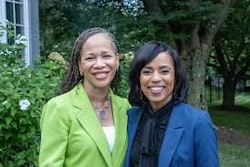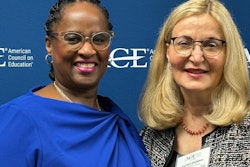How interesting that for centuries, women, people of color, immigrants, children, and other marginalized populations were either considered property of men, dehumanized, or both.
Yet it was during the 19th century Progressive Era that women emerged as the catalysts of social justice in this country. During that era, they established colleges and universities, and laid the groundwork for the 1920 passage of the 19th Amendment that gave women the right to vote.
Yet, fast-forward to the 21st century, and it is women who have been the victims of inequality, inequity, and injustice. How do women begin on a path to success without equity and pathways for upward mobility? That’s the question many women, particularly women of color, ask themselves as they navigate the complex and isolating world of academia.
According to a recent study from the National Academies of Sciences, Engineering, and Medicine, more than half of female faculty and staff in the science, engineering, and medical (SEM) fields, and 20-50 percent of female students, encounter sexual harassment in academia. Not only does harassment affect the career trajectory of female faculty in SEM, but it’s also shown to impede the advancement of science itself.
Harassment is only part of the battle women are fighting. The other fight is for women in science to be heard and for their work to overcome prejudice or discrimination and become respected. As a woman in science, I’ve found it is imperative that women take control of the equity narrative. Encountering racism and gender bias in my career has taught me to channel my anger and frustration into teachable moments. I boldly challenge discriminatory comments and behaviors, and try to provide learning opportunities for others in academia. I am a strong believer that whenever we witness injustice, we must speak up and call it out individually and systemically.
When I was studying for my Doctorate of Public Health degree, an adjunct faculty member invited the women of color pursuing DrPH degrees to a special evening meeting. I thought the meeting was a mentoring opportunity for us. Instead, we listened to the faculty member tell us our existing master-level degrees were sufficient academic achievements in the public health field, noting the academic difficulty and fiscal burden of obtaining a doctoral degree while being married and raising children. I was shocked by the discussion and incensed by such blatant sexism. I interjected, asking why there were only women of color in the meeting. Was the same conversation offered to white and male students? The faculty member responded with a triple layer of excuses, apologies, and pacifying rhetoric. Bottom line: my question was never answered. In many ways, that meeting fueled my passion to earn not only my DrPH degree, but to be more intentional and involved in contributing to decisions in my future school’s department.
We should be focused on helping women move forward in their chosen careers, not on holding them back or asking them to settle for anything less than what they want to accomplish. One way of doing that is to hire more women in senior positions in academia. This could help cultivate a more welcoming environment for other women to succeed in these fields. With more qualified women in leadership roles, we can change the antiquated ideologies and perspectives that harm current and future female faculty, as well as the SEM field. When women achieve success in academia, it serves us well to pay it forward. Thus, mentoring the next generation of women in science paves the way for equity, innovation, and advancement.
Faculty mentors are important resources for everything from sparking interest in a field of study to providing information on student loan repayment and refinancing. I remember so clearly the difficulties I faced early in my studies because I was unfamiliar with the politics of academia. I’m the first person to earn a master’s degree in my family; I started out not knowing how to navigate the academic system, so mentorship was an essential part of my success. Now I contribute to dismantling the barriers I faced, and use the tools I gathered along the way to help young women in SEM.
This is where programs supporting diversity and inclusiveness in research are also valuable. The New Connections program, which supports underrepresented researchers, is another resource that taught me how not to compromise science in the face of adversity. There’s no way I’d be the first African-American hired as full-time faculty in my department, or the first person of color to earn tenure in my department, if I hadn’t persisted. I now know my voice is important to the climate of the classroom and my institution. I learned how to challenge discrimination, rise above a perceived token status, and very importantly, I learned not to become oversaturated with committees that were not beneficial to my tenure.
Advancing diversity also provides more opportunities for equitable academic experiences, and innovation in science suffers without it. Each future scientist’s experiences and culture spark different ways of thinking and problem solving, and innovation relies on it. Science is rooted in curiosity, and homogeneity doesn’t broaden horizons. Women bring diverse perspectives and contribute valuable insight that stimulates scientific innovation.
We don’t seek handouts or quota tokens. We seek equity. We are gifted, talented, and brilliant women in the SEM field, and we will not compromise our values, bodies, or integrity. Our predecessors fought too hard to get us here, and we won’t sweep harassment and discrimination under the rug. As women, we can and will continue to make lasting and positive change for ourselves and for science. What we want is honest, solution-focused dialogue to address and eradicate harassment and discrimination in the SEM field. Are you ready to talk and solve this matter together?
Dr. Sharon Jones-Eversley, is an associate professor and social epidemiologist at Towson University where she researches intergenerational disease distribution.















